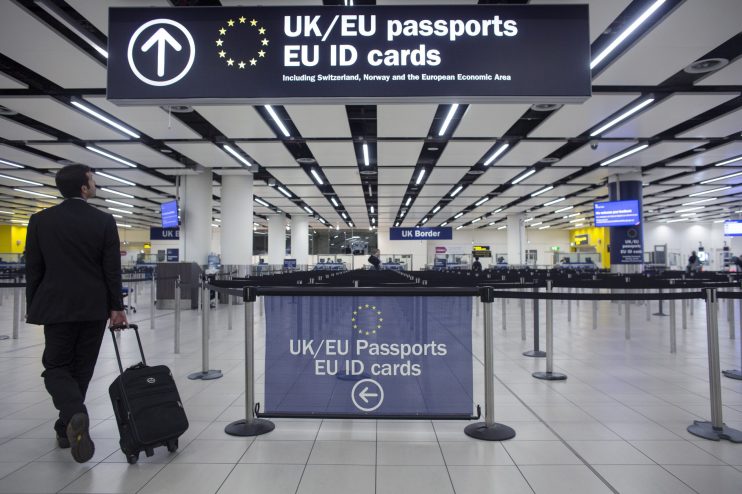UK immigration no longer ‘top of mind’ issue, says new report

Immigration is no longer a “top of the mind” issue for Britons, according to new research.
A report from think tank British Future found immigration ranked as the ninth most important issues for voters, with 41 per cent saying they rated the issue as “very important”.
The pro-immigration think tank said this was in contrast to 2016 when “research consistently found immigration to be the public’s number one issue of concern”.
The same report also found that 59 per cent of respondents rated Brexit as a “very important issue”.
The study found that when asked to rate the impact of immigration on a one-to-10 scale, one being very negative and 10 very positive, 56 per cent of people answered between a four and a seven.
A majority of Tory, Conservative and Liberal Democrat voters all fell between this range.
British Future director Sunder Katwala said the findings meant Boris Johnson had a chance to “bring more light and less heat” to the immigration debate.
“Without the millstone of the net migration target around his neck, the Prime Minister can make his case that taking back control should mean Britain welcoming the migration we decide to keep,” he said.
“And by making the missing links between immigration and integration policy, we can forge an approach that’s fair to those who come to live and work in Britain, and to the communities that they join too.”
The government unveiled its post-Brexit immigration plans last month.
The new points-based system will require EU immigration applicants to to speak English, have a job offer in the UK and to have never been given a custodial sentence of 12 months or more.
The minimum salary for job offers needs to be £25,600.
Dr Alan Mendoza, executive director of the Henry Jackson Society think tank, said the new report showed there was room for a more nuanced debate around immigration.
He said: This study provides the government with an opportunity to ‘take back control’ of the immigration agenda from the draconian position of ‘they shall not enter’ to a more nuanced one which recognises that Britons see the benefits of some immigration, even of the low paid variety.
“The government can now adopt a controlled strategy which gives the UK the freedom to import in both the formally skilled and core labour shortage areas of the economy.”